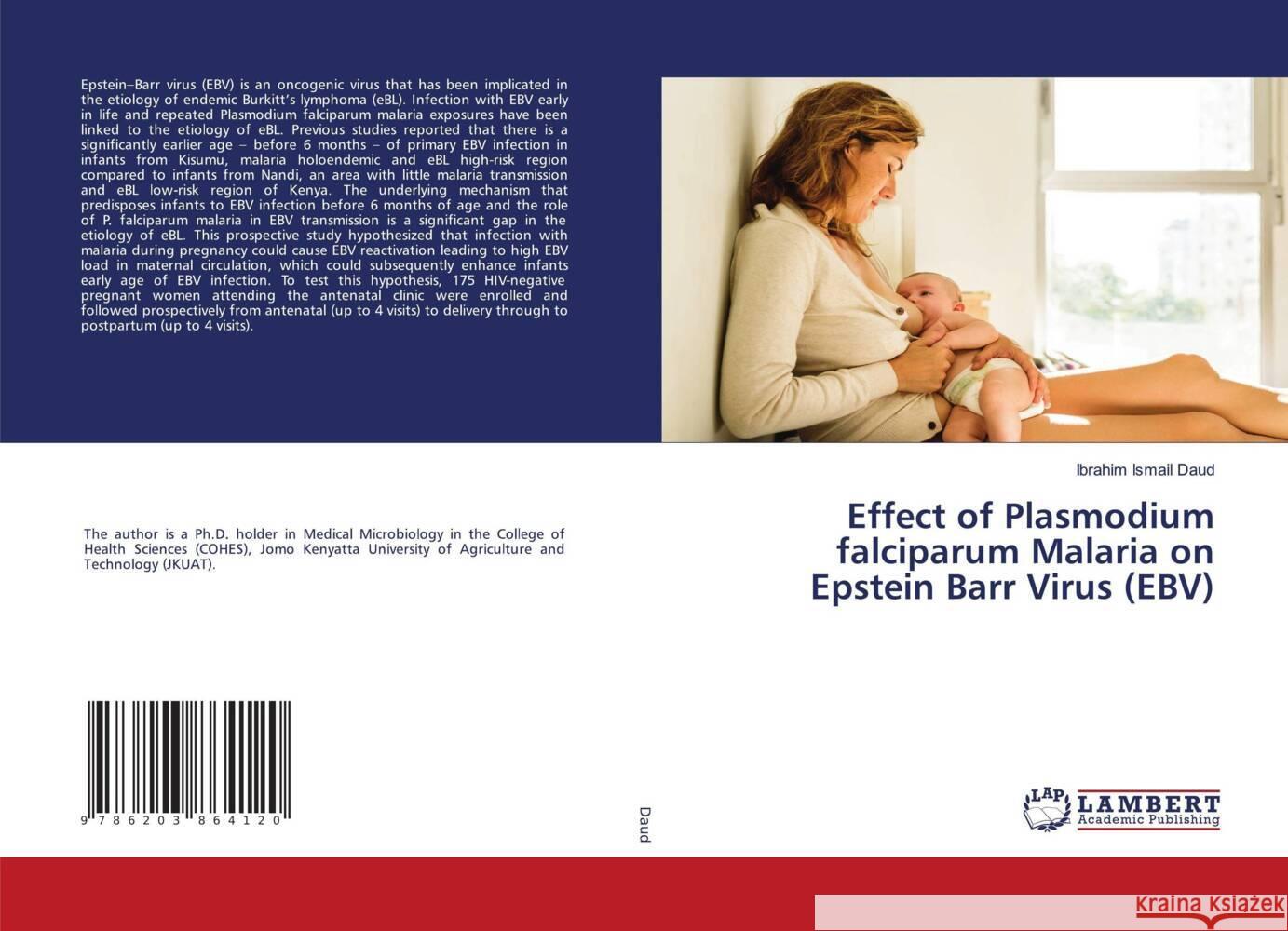Effect of Plasmodium falciparum Malaria on Epstein Barr Virus (EBV) » książka
Effect of Plasmodium falciparum Malaria on Epstein Barr Virus (EBV)
ISBN-13: 9786203864120 / Angielski / Miękka / 128 str.
Epstein-Barr virus (EBV) is an oncogenic virus that has been implicated in the etiology of endemic Burkitt's lymphoma (eBL). Infection with EBV early in life and repeated Plasmodium falciparum malaria exposures have been linked to the etiology of eBL. Previous studies reported that there is a significantly earlier age - before 6 months - of primary EBV infection in infants from Kisumu, malaria holoendemic and eBL high-risk region compared to infants from Nandi, an area with little malaria transmission and eBL low-risk region of Kenya. The underlying mechanism that predisposes infants to EBV infection before 6 months of age and the role of P. falciparum malaria in EBV transmission is a significant gap in the etiology of eBL. This prospective study hypothesized that infection with malaria during pregnancy could cause EBV reactivation leading to high EBV load in maternal circulation, which could subsequently enhance infants early age of EBV infection. To test this hypothesis, 175 HIV-negative pregnant women attending the antenatal clinic were enrolled and followed prospectively from antenatal (up to 4 visits) to delivery through to postpartum (up to 4 visits).











